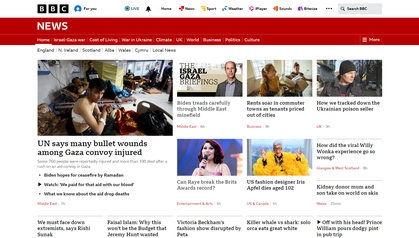Information Online: Exploring the Effect On International Communication
The transformation of information intake through on-line platforms has dramatically changed the landscape of international interaction. This digital evolution has actually allowed a much more comprehensive exchange of details, going beyond traditional geographical confines and democratizing accessibility to varied viewpoints. However, it likewise offers a paradox: while promoting higher connection and cross-cultural discussion, it at the same time tests the stability of info and amplifies polarizing stories. As we navigate this elaborate terrain, the question stays: exactly how do we stabilize the empowerment of voices worldwide with the need for precision and positive discourse in an era of unprecedented info flow?
Democratization of Info
The democratization of information, sustained by the increase of information online, has exceptionally improved global communication dynamics. With the web's expansion, info is no more the unique province of typical media outlets. This improvement has actually brought about a much more inclusive media setting where diverse voices can be heard, and a plurality of viewpoints can be shared quickly throughout the globe. Digital platforms have actually equipped people and non-traditional media gamers to disseminate information, testing the syndicate of well-known wire service.
On one hand, the accessibility of information has raised openness and responsibility, as people can currently accessibility and validate information from different resources. On the various other hand, the democratization of info has presented obstacles such as the proliferation of false information and the need for media literacy among consumers to determine reputable resources.
Damaging Geographical Barriers
Transcending geographical boundaries, on the internet information platforms have changed global interaction by allowing real-time information exchange throughout continents. This change has dismantled the historic restrictions imposed by physical distance, permitting people, despite location, to access a wide range of information instantaneously. As an outcome, information consumers are no more constrained to regional perspectives; instead, they are encouraged to engage with diverse perspectives and narratives from around the globe.
The immediacy of on the internet information has cultivated an extraordinary degree of connection, bridging societies and fostering an international discussion. By supplying a digital space where info streams easily, these platforms have developed an interconnected worldwide neighborhood. This is specifically substantial in times of crisis, where prompt updates are essential for notified decision-making. dw news. For instance, throughout political upheavals or all-natural disasters, online information solutions supply quick dissemination of information, assisting in global assistance and collaboration.
Furthermore, the capability to access information from various regions improves social understanding and recognition. It permits people to appreciate the intricacies of worldwide concerns and encourages cross-cultural empathy. In amount, the breaking of geographical barriers by online information systems has essentially improved the way people connect with and comprehend the globe.

Impact on Popular Opinion
As news intake significantly changes to electronic areas, these platforms offer not just as information resources however additionally as sectors for public discourse. The immediacy and access of on-line news promote rapid circulation of details, allowing customers to create point of views swiftly based on the newest developments.
Online news systems have the prospective to shape stories by picking which stories to highlight and how to mount them. The participatory nature of digital information allows individuals to engage straight with web content, contributing to a more democratized circulation of details.
Challenges of Misinformation
With the expanding impact of on-line news systems fit public point of view, a pressing issue emerges around the proliferation of false information. The simplicity with which news can be shared across numerous electronic mediums has resulted in a setting where inaccurate or deceptive details can spread quickly, typically uncontrolled. This positions considerable obstacles not just to individuals looking for reliable news sources however likewise to the honesty of public discussion at large.

Misinformation can take several kinds, consisting of produced information stories, modified images, and misstated data. Compounding the issue is the visibility of resemble chambers and filter bubbles, where individuals are revealed predominantly to point of views that enhance their present beliefs. This environment can aggravate polarization and hinder vital reasoning.
The difficulty for on the internet systems is to balance the need for open communication with the duty to curb the spread article of incorrect info. Algorithms created to make best use of engagement often inadvertently focus on spectacular material, which may include false information. Fact-checking initiatives and electronic proficiency programs have actually become essential devices in combating this problem, yet they encounter limitations in scope and reach. As electronic information consumption remains to expand, addressing false information continues to be a complicated and urgent difficulty for worldwide interaction.
Linking Cross-Cultural Voids

The democratization of information through digital media enables individuals to transcend geographical boundaries, gaining insights into lives and societies greatly various from their own. This exchange of info not only improves cultural recognition but additionally advertises tolerance and approval. Furthermore, online news outlets usually include contributions from neighborhood reporters that supply authentic narratives that may or else stay unheard, thus improving the international discourse.

Final Thought
The rise of on the internet information has basically changed international communication by equalizing info and damaging geographical obstacles. This change has actually encouraged varied voices, affecting popular opinion and promoting cross-cultural understanding. Nevertheless, the challenges of misinformation and echo chambers continue, highlighting the necessity for media literacy and essential reasoning. As electronic landscapes progress, promoting a notified and involved worldwide population is critical for browsing the complexities of modern details circulation and maintaining useful public discussion.
The democratization of info, fueled by the surge of information online, has actually greatly reshaped worldwide communication dynamics. Digital systems have encouraged people and non-traditional media players to disseminate news, challenging the syndicate of well-known information companies.
Going beyond geographical borders, on the internet information systems have changed worldwide interaction by enabling real-time info exchange across continents. The immediacy and access of on-line information facilitate quick circulation of details, allowing individuals to create opinions promptly based on the latest advancements.The rise of online information has essentially transformed global interaction by equalizing details and damaging geographical barriers.
 Ariana Richards Then & Now!
Ariana Richards Then & Now! Patrick Renna Then & Now!
Patrick Renna Then & Now! Richard "Little Hercules" Sandrak Then & Now!
Richard "Little Hercules" Sandrak Then & Now! Alisan Porter Then & Now!
Alisan Porter Then & Now! Bo Derek Then & Now!
Bo Derek Then & Now!